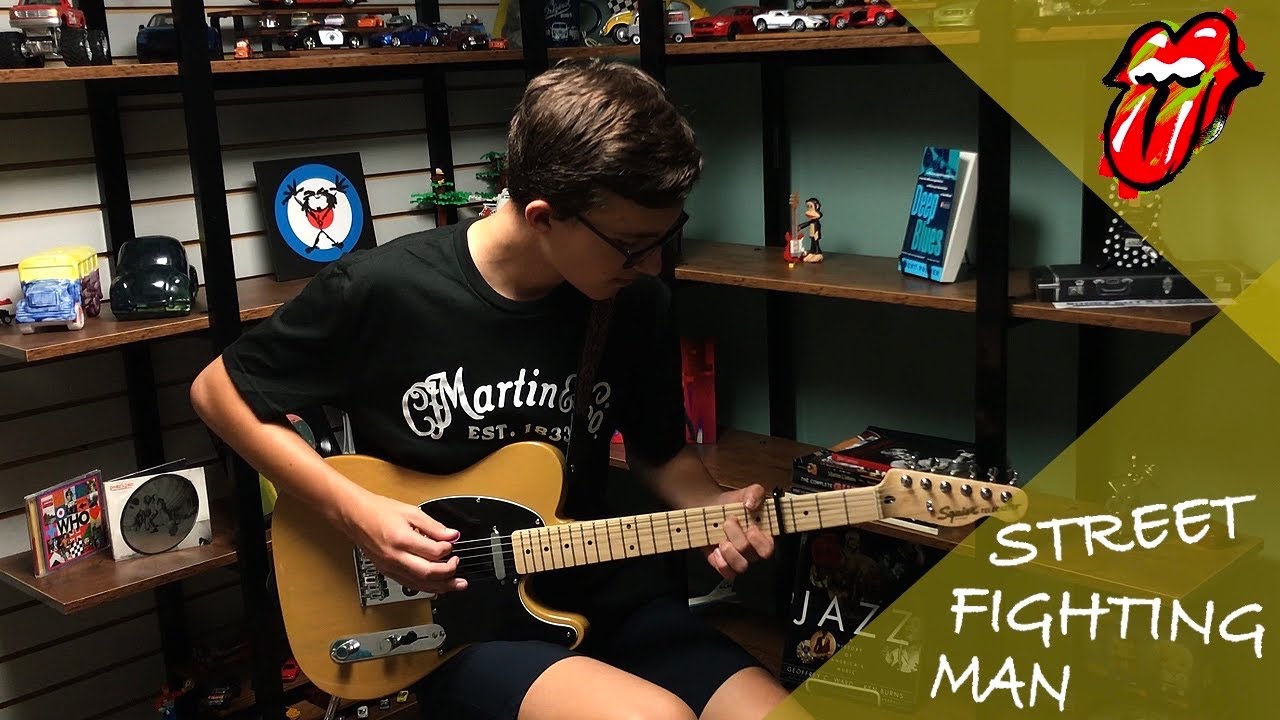#StreetFightingMan – @TheRollingStones (Cover)
History of S.F. Man:
This song deals with civil unrest in Europe and America in 1968. There were student riots in London and Paris, and protests in America over the Vietnam War. The specific event that led Mick Jagger to write the lyric was a demonstration at Grosvenor Square in London on March 17, 1968. Jagger joined an estimated 25,000 protesters in condemning the Vietnam War.
The demonstrators marched to the American embassy, where the protest turned violent. Mounted police charged the crowd, which responded by throwing rocks and smoke bombs. About 200 people were taken to the hospital and another 246 arrested. Jagger didn’t make it to the embassy: before the protest turned violent, he abandoned it, returning to his home in nearby Cheyne Walk. Jagger realized that his celebrity was a hindrance to the protest, as his presence distracted from the cause.
This was the first Stones song to make a powerful political statement, although with an air of resignation. Jagger opens the song declaring “the time is right for fighting in the street,” but goes on to sing, “But what can a poor boy do, ‘cept sing in a rock and roll band.”
This sense of hopelessness in the face of atrocity may be why the Rolling Stones became apolitical, focusing their efforts on songs about relationships and rock n’ roll. In the process, they became very rich and beloved by members of all political persuasion.
In the US, this was released as a single on August 31, 1968, just a few days after the Democratic National Convention, which took place August 26-29. The convention was marred by violence, as Chicago police clashed with protesters. When the song was released, every radio station in Chicago (and most in the rest of the country), refused to play it for fear that it would incite more violence. There was no official ban in America or Chicago, but stations knew it was in their best interest to shun the song, which accounts for its meager chart position of #48.
Mick Jagger later said: “The radio stations that banned the song told me that ‘Street Fighting Man’ was subversive. ‘Of course it’s subversive,’ we said. It’s stupid to think you can start a revolution with a record. I wish you could!”
Keith Richards started developing this song in late 1966, but had a hard time getting the sound he was after. The breakthrough came when he bought a Philips cassette recorder and realized he could get a dry, crisp sound by playing his acoustic guitar into it, which he could then distort by playing it back through a speaker and into a studio recorder. The only electric instrument on the entire song is the bass.
The melody was influenced by the sound of police sirens.
Lyrics:
Ev’rywhere I hear the sound
Of marching charging feet, boy
Cause summer’s here and the time is right
For fighting in the street, boy
Well now, what can a poor boy do
Except to sing for a rock n’ roll band?
‘Cause in sleepy London town
There’s just no place for a street fighting man, no
Hey think the time is right
For a palace revolution
But where I live the game
To play is compromise solution
Well now, what can a poor boy do
Except to sing for a rock n’ roll band?
‘Cause in sleepy London town
There’s just no place for a street fighting man,
no. Get down.
Hey so my name is called Disturbance
I’ll shout and scream
I’ll kill the king, I’ll rail at all his servants
Well, what can a poor boy do
Except to sing for a rock n’ roll band?
‘Cause in sleepy London town
There’s just no place for a street fighting man, no
Get down
–
#TheRollingStones #BeggarsBanquet
